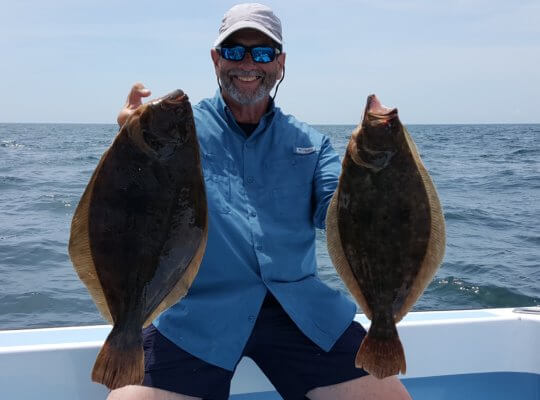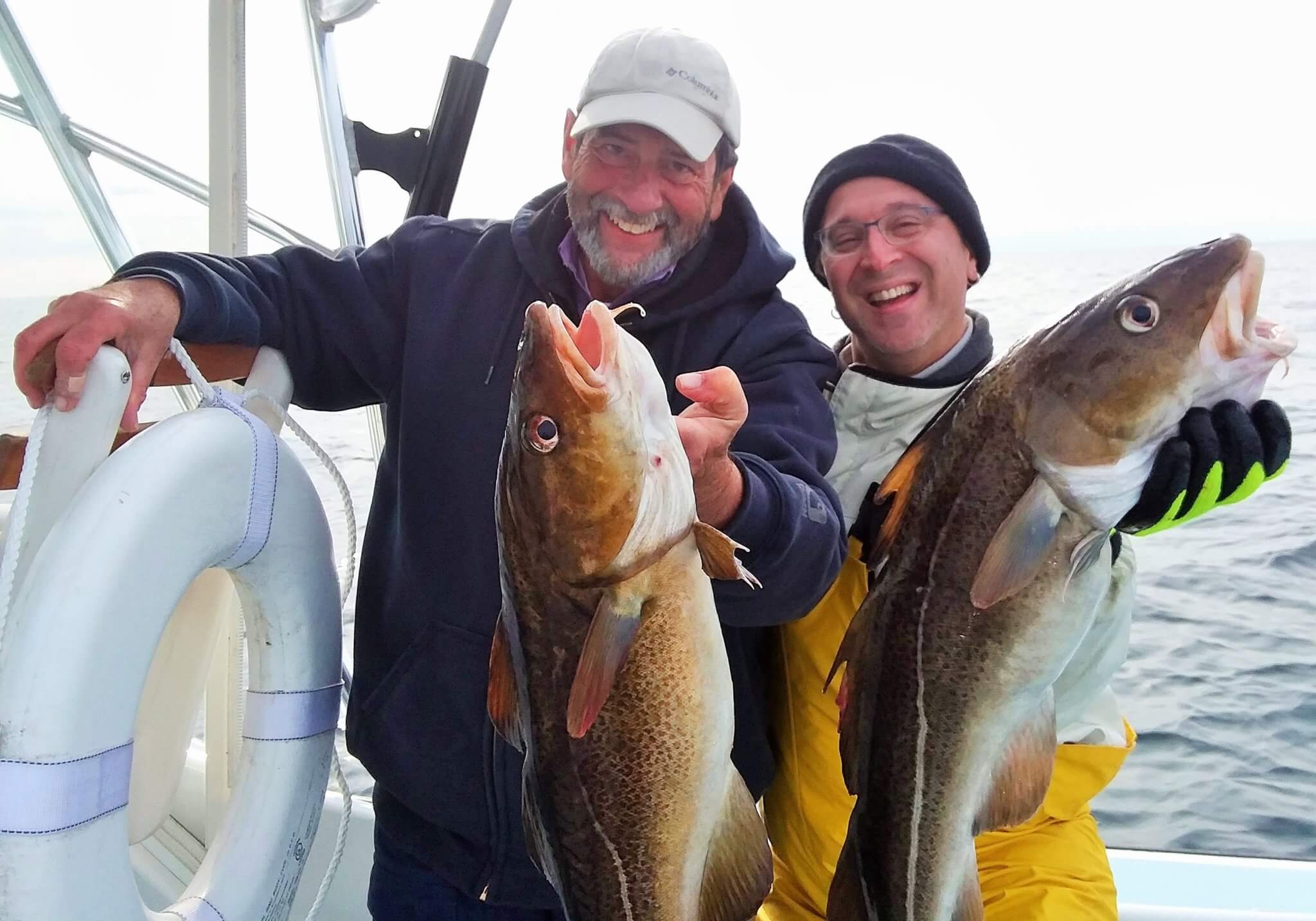After a life on the water this New Englander embraces offshore wind
Captain Dave Monti has been sailing and fishing the waters off his native Rhode Island since he was a kid. And despite a lengthy career in public relations, he never stayed land-bound, at first running a charter boat on the side and then making it a full-time gig. These days, Captain Dave spends a third of his time running a fishing charter, a third writing about fishing for the Providence Journal and nearly a dozen other outlets, and a third advocating for the protection of our oceans and fisheries.
“I’m living the life, I get to take people fishing, then write about it, and then advocate on behalf of it,” Dave told me.

Simply put, this is a guy who understands the water and New England marine life. So it means something that he has become a devoted offshore wind proponent.
“Being a fishing writer, I’m a firm believer in renewable energy,” he said. “I’m obviously a believer that climate change poses a real threat… I believe offshore wind is a good source of renewable energy that can help offset climate impacts.”
During a life spent on the water, Dave has witnessed firsthand the impacts climate change is having on our fisheries and marine life, and troublingly, these changes have accelerated in recent years. As the New England ocean warms, cold water species like winter flounder have moved further out to sea in search of cooler, deeper waters, while warm water species like summer flounder and black sea bass have taken their place.
“The fish I catch today are different in type and abundance than what I caught 10 years ago,” he said.
Dave told me climate change is negatively affecting New England marine life in a number of ways—rising sea levels are changing estuaries that serve as important spawning grounds; ocean acidification is harming shellfish; and lower oxygen levels are having damaging impacts, among other factors.
Without a transition to zero-carbon energy sources, this degradation will only get worse, and that’s why Dave supports offshore wind development. And with fishing playing such a big role in his life, Dave sees no reason why offshore wind and the fishing industry can’t coexist.
“I understand where [fishermen are] concerned. Usually it’s a matter of education, and making folks aware of the science and data that exists,” he said. “I’m a firm believer that offshore wind will be good for fishing just as it has been at the Block Island Wind farm (BIWF). The area there was always good for fishing, and it’s arguably a little better than it was despite many more people fishing there now. There used to be 25 boats at BIWF on a weekend now there might be 100. They wouldn’t be there if the fishing wasn’t good.”
Dave also noted studies of European offshore wind farms that found greater abundances of fish after projects were built, since they can serve as artificial reefs that attract new life. While he finds skepticism of offshore wind among fishing groups understandable, Dave ultimately believes there’s nothing to worry about.
“I think there’s a fear of the unknown that its going stop their fishing and be bad for their fishing, but I have seen nothing that points to that,” Dave said. “I have colleagues in New York who are charter captains that can’t wait for offshore projects to come.”
Dave’s advice for those who remain on the fence– check the science. Make sure it’s fact based, peer-reviewed science, and insist that monitoring should be done before, during, and after construction. Ultimately, climate change poses a grave threat to our oceans, and offshore wind is a major climate solution. With nearly five decades of experience on the water under his belt, Dave sees no reason why fishing and offshore wind can’t coexist.

